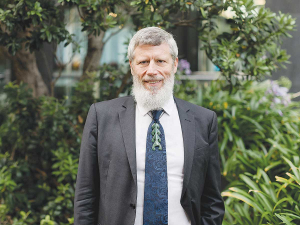New Zealand shows climate gains, but urgent action needed
The Climate Change Commission’s 2025 emissions reduction monitoring report reveals steady progress on the reduction of New Zealand’s climate pollution.
 Climate Change Commission chair Rod Carr says agriculture has a large role to play in reducing emissions and farming needs to become even more efficient.
Climate Change Commission chair Rod Carr says agriculture has a large role to play in reducing emissions and farming needs to become even more efficient.
More science and technology, more trees and fewer livestock is the prescription that the Climate Change Commission has offered up in its draft report on how to reduce greenhouse gases in the agriculture sector.
The report covers all aspects of New Zealand society and includes agriculture.
In the 200 page chronicle, the Climate Commission sets out a plan for NZ to meet its greenhouse gas emissions targets by 2050. It is a draft report, based on the commission’s own research and submissions from a wide range of organisations and individuals. It is now out for consultation before a final report is prepared by the end of May.
Commission chair Rod Carr says to achieve the Government’s goal of net zero emissions by 2050, there needs to be transformational and lasting change across society and the economy. He says the Government must act now and pick up the pace.
Carr says the targets will not be met unless there is strong and decisive action to drive low emissions technology and behavioural change across all sectors.
He adds that connectivity – namely the widespread roll out of broadband – is critical to meeting these targets.
Carr told Rural News that agriculture has a large role to play in reducing emissions and farming needs to become even more efficient. He says while improvements have been made in the last few decades, more must happen.
“I think the ask of agriculture is similar to all New Zealanders, it is ambitious and realistic,” he says.
Carr told Rural News that under the current policies, NZ will not meet the targets and that between now and 2035. However, he believes some policies and support can be put in place to achieve a 13% reduction in biogenic methane by 2030 and a 20% reduction by 2035. But he concedes that further action will be needed to meet the 2050 target.
Donald Trump's latest tariff tantrum has again thrown the world of trade into a new round of turmoil and uncertainty, and NZ is caught up in it.
The third edition of the NZ Dairy Expo, held in mid-February in Matamata, has shown that the KISS principle (keep it simple stupid) was getting a positive response from exhibitors and visitors alike.
Twenty years ago, South African dairy farm manager Louis Vandenberg was sent to a farm in Waikato to provide training on Afimilk technology.
Strong farmgate milk price is helping boost investment on farms, says PGG Wrightson chief executive Stephen Guerin.
Fonterra's 460 milk suppliers in Australia, who will switch to Lactalis end of this month, are unfazed with the impending change.
The 5+ A Day Charitable Trust has launched a collection of affordable recipes designed to turn everyday vegetables into seasonal stars.